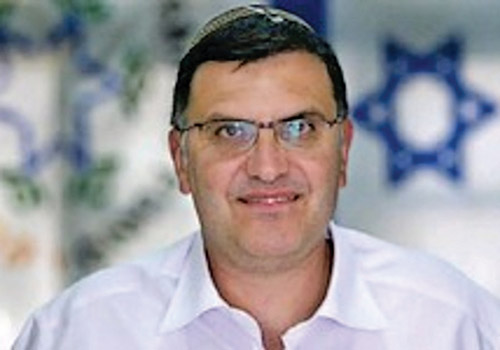
It has been a long time since Rabbi David Hatuel has had a place to call a home of his own.
Hatuel, who is originally from the Gush Katif community, found his life tragically changed after a series of events in 2004. Hatuel lived with his expectant wife, Tali, and their four daughters. The family had moved to the Israeli settlement, located in the Gaza Strip, in 1992. On May 2, 2004, Tali and her four daughters were driving in their car near the Kissufim Crossing when they were attacked by two Palestinian terrorists. The attack proved fatal for Tali and the couple’s children, aged 11, 9, 7 and 2. Two Israeli soldiers were injured as well, along with another Israeli civilian who managed to drive away from the scene. It was the first time settlers had been killed in the Gaza Strip since 2002.
One year after the attack, Hatuel found his life drastically changed again, as the Israeli government implemented the Disengagement Plan. In August 2005, Hatuel, along with the other thousands living in Israeli settlements in the Gaza area, was forced to leave his community behind and settle elsewhere in Israel. Gush Katif families scattered across the country, most while trying to keep their communities together. They found themselves in temporary homes while waiting for their new homes to be prepared. Hatuel and his second wife, Limor, found themselves living in a trailer. Most of the displaced settlers were able to find new permanent homes within a few years. For the Hatuels, however, the “temporary” solution has lasted for 12 years.
Due to unexpected delays in the process, the Hatuels and the other former residents of the Gush Katif community are just now starting to build their permanent homes in the Lachish region of central Israel. Until completion, however, the Hatuels and their four sons and daughter will continue living in a trailer. Their new community, Karmei Katif, seeks to remember those who have been lost. Hatuel plans to build a synagogue for his new community in memory of Tali and his children.
Jay Knopf, a volunteer for Friends of Gush Katif, first heard about the situation in 2005, as the Disengagement Plan was being implemented. He helped raise $2.6 million to help the people who were forced to restart their lives. Knopf said, “People were dragged from their homes. Shuls were blown up…” Knopf was eager to assist, and got in contact with Dror Vanunu, who will be Hatuel’s translator when he speaks publicly about his experiences. Knopf feels that Hatuel’s story will be one that inspires audiences and offers a powerful message. He remarked, “It’s an important message right after Tisha B’Av. Tisha B’Av is about being destroyed and ultimately rebuilding in Israel.”
Hatuel is currently on his first trip outside of Israel, spreading his message of rebuilding and remembering after tragedy strikes. Now a supervisor in Israel’s Ministry of Education for the southern district, he will share his story of courage and inspiration at Congregation Rinat Yisrael on Sunday, August 6. Said Knopf, “It can help all of us deal with the stuff that we all deal with. If he can do it, we can do it.”
David Hatuel will be speaking in the social hall of Congregation Rinat Yisrael at 389 West Englewood Avenue in Teaneck on Sunday, August 6, at 7 p.m.
By Ariella Shua













